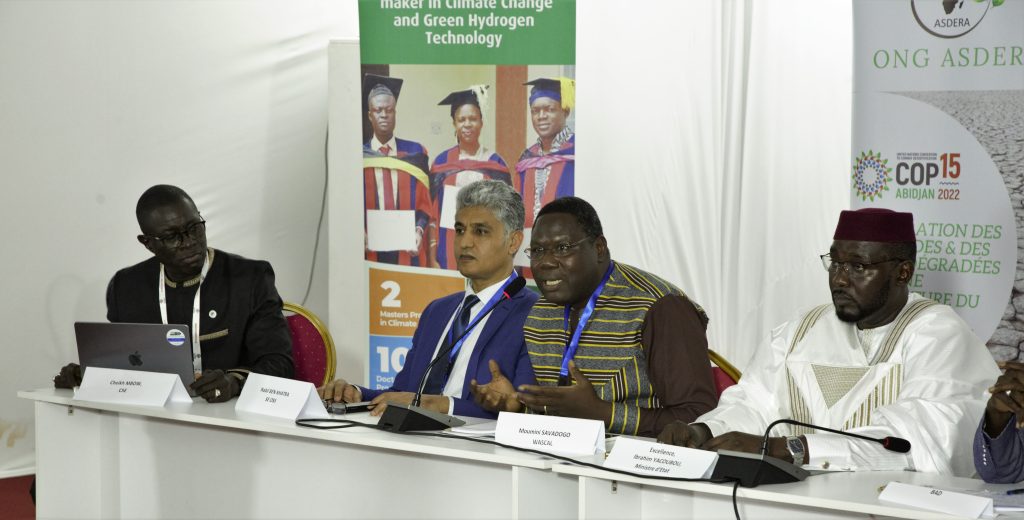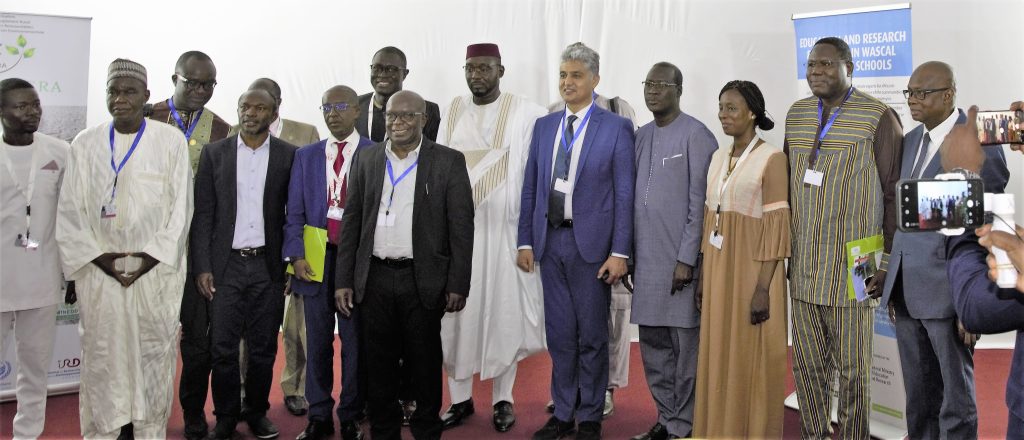
One of the key highlights at the United Nations Convention to Combat Desertification (UNFCCD) Abidjan Cop15 side event by Institut de recherche pour le développement (IRD) and partners on “Shaping enabling conditions for sustainable interventions for drought resilience” was the issue of creating a robust synergy amongst stakeholders in the quest to find alternative solution to land degradation through green hydrogen while restoring the already degraded lands through formidable abridging of science-finance policies.
Speaking on the theme, “shaping enabling conditions for sustainable interventions towards drought resilience in Africa drylands: Intersecting views” the Executive Director of WASCAL Dr. Moumini Savadogo was emphatic about bridging the science‐policy‐finance gaps in West Africa for sustainable land management for climate resilient.
He stated the need for the employment of various strategies in the fight against land degradation in Africa through mitigation and adaptation efforts. He also identified the need for institutions to work together to ensure a cohesive and coherent victory.
It was a key moment in the fight against desertification, land degradation and drought. It will build on the findings of the second edition of the Global Land Outlook and offer a concrete response to the interconnected challenges of land degradation, climate change and biodiversity loss as we step into the UN Decade on Ecosystem Restoration.
Dr. Savadogo further elaborated the role of capacity building and the impact of WASCAL in this area in the contribution towards the mitigation and provision of alternative measures to win the battle against land degradation.
Amongst the panelists were Honorable Ibrahim Yacoubou, Minister of Energy and Renewable Energies, Niger, and other dignitaries from African Development Bank Group, OSS, and CILLS. The event was moderated by Prof. Arona Diedhiou from the IRD.
The 15th session of the Conference of the Parties (COP15) of the United Nations Convention to Combat Desertification (UNCCD) was under the theme, ‘Land. Life. Legacy: From scarcity to prosperity’, which was a call to action to ensure land, the lifeline on this planet, continues to benefit present and future generations. The conference brought together leaders from governments, the private sector, civil society and other key stakeholders from around the world to drive progress in the future sustainable management of one of our most precious commodities: land.
By 2030, the number of people living in the African drylands is expected to increase by 65-80%. If the current situation is precarious, the future promises to be even more difficult as the challenges to livelihoods in drylands are compounded by climate change, which could lead to an expansion of dryland areas by as much as 20 % under some scenarios. This would lead to an increase in the number of people living in an increasingly insecure environment.
Aligned with conclusions of the UNCCD Intergovernmental Working Group on drought and the recommendations of the Science-Policy Interface, the side-event sought to provide a contribution to the UNCCD drought agenda in allowing intersecting views on enabling conditions for sustainable interventions against drought in African drylands.
In attendance were WASCAL scholars, including alumni and current students, principally based in Cote d’Ivoire and extensively across West Africa.


